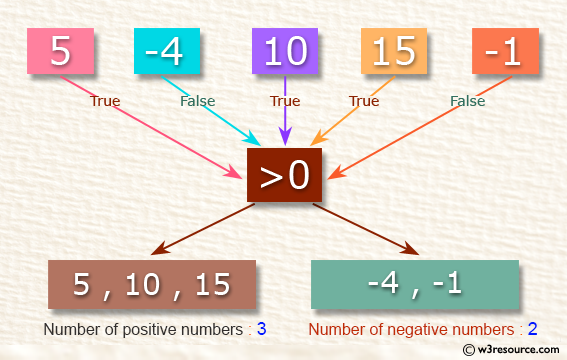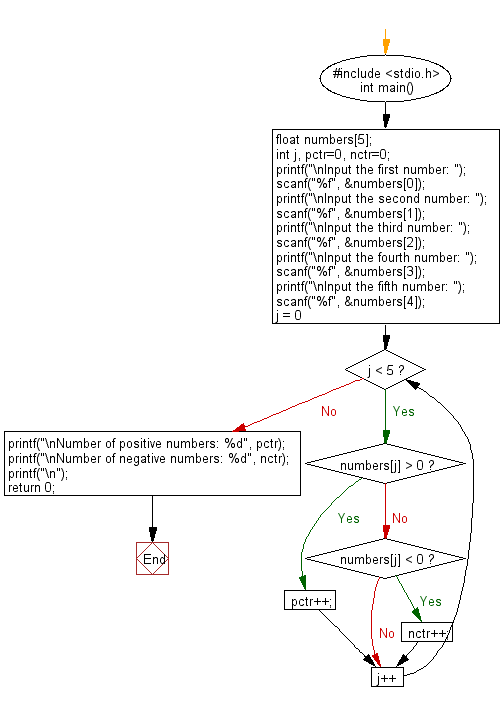Count positive and negative numbers in 5 inputs
Count positive and negative numbers in 5 inputs
Write a C program that reads 5 numbers and counts the number of positive numbers and negative numbers.
Pictorial Presetation:

C Code:
#include <stdio.h>
int main() {
float numbers[5]; // Declare an array to store 5 numbers
int j, pctr=0, nctr=0; // Declare variables for loop counter, positive count, and negative count
// Prompt user for five numbers and store them in the array
printf("\nInput the first number: ");
scanf("%f", &numbers[0]);
printf("\nInput the second number: ");
scanf("%f", &numbers[1]);
printf("\nInput the third number: ");
scanf("%f", &numbers[2]);
printf("\nInput the fourth number: ");
scanf("%f", &numbers[3]);
printf("\nInput the fifth number: ");
scanf("%f", &numbers[4]);
for(j = 0; j < 5; j++) {
if(numbers[j] > 0) // Check if the number is positive
{
pctr++; // Increment positive count
}
else if(numbers[j] < 0) // Check if the number is negative
{
nctr++; // Increment negative count
}
}
// Print the counts of positive and negative numbers
printf("\nNumber of positive numbers: %d", pctr);
printf("\nNumber of negative numbers: %d", nctr);
printf("\n");
return 0;
}
Sample Output:
Input the first number: 5
Input the second number: -4
Input the third number: 10
Input the fourth number: 15
Input the fifth number: -1
Number of positive numbers: 3
Number of negative numbers: 2
Flowchart:

For more Practice: Solve these Related Problems:
- Write a C program to count the number of even and odd numbers among five inputs.
- Write a C program to count the positive, negative, and zero values from a set of five integers.
- Write a C program to count how many numbers in a list fall within a specified range.
- Write a C program to count the number of prime numbers among five integers entered by the user.
Go to:
PREV : Print all even numbers between 1 and 50.
NEXT : Count positives and calculate their average from 5 inputs.
C Programming Code Editor:
Have another way to solve this solution? Contribute your code (and comments) through Disqus.
What is the difficulty level of this exercise?
Test your Programming skills with w3resource's quiz.
